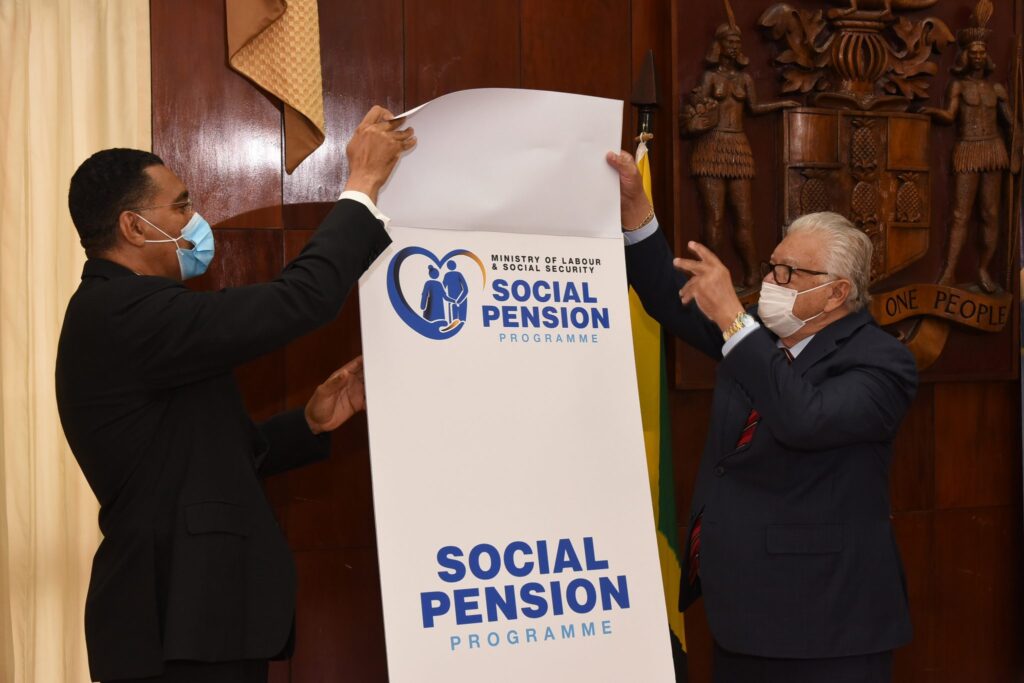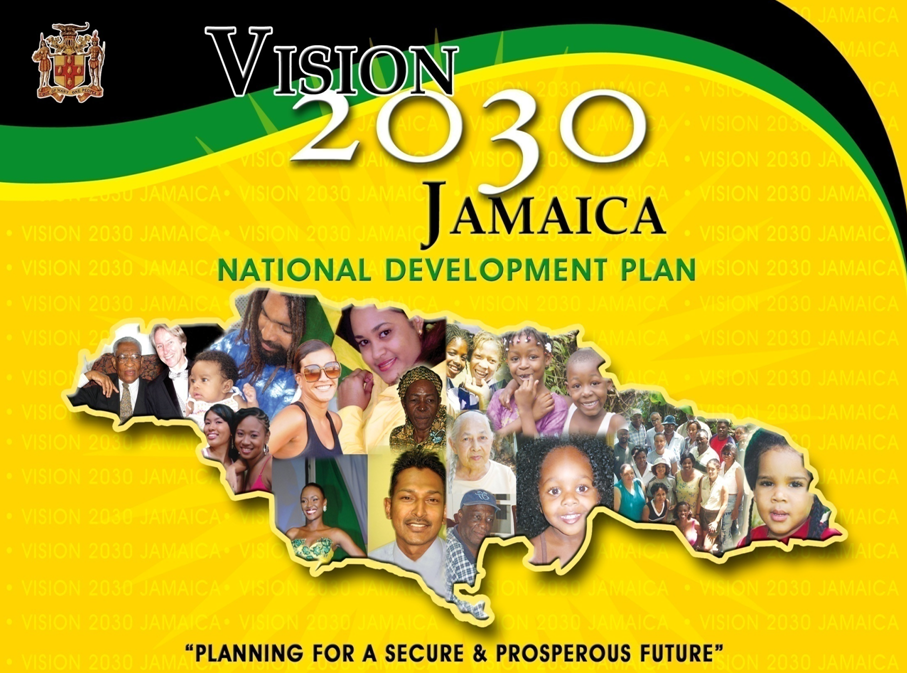

Durrant Pate/Contributor
The Auditor General’s Department (ADG) has found systemic weaknesses in Jamaica’s Social Safety Net Reform Programme (SSNRP), which was initiated in 2000, concluding that the reforms of social benefit distribution have not progressed.
In its cross-cutting performance audit of the distribution of social benefits in Jamaica, the AGD found, “the effectiveness of the Government’s social benefit programmes continues to be hindered by a fragmented and inefficient administrative structure, which is largely due to challenges in implementing longstanding reform measures aimed at creating a more streamlined and effective system of social benefit distribution.”
This has resulted in an environment where operational deficiencies persist, hindering the optimal delivery of social benefits to those in need. The audit assessed the effectiveness of the programmes’ administration in delivering social benefits, considering the Vision 2030 National Development Plan (NDP) strategy for Jamaica to create and sustain an effective, efficient, transparent, and objective system for delivering social assistance services and programmes.
The audit focused on selected non-contributory social benefit programmes, primarily assessing the legislative framework and the administration of social benefit programmes, given the strategic direction of the NDP and the subsequent Social Protection Strategy.
Major findings of the audit
In its 75-page report, which was tabled in parliament Tuesday evening (January 14), “Jamaica is yet to establish an overarching legal framework and a unified approach to manage social welfare distribution…We found that the various social programmes had similar objectives and overlapping functions, covering parts or the same areas of interest with little or no coordination in the distribution of said benefits.

For example, the distribution of housing-related benefits started with the poor relief programme, under the Ministry of Local Government and Community Development (MLGCD) but the Government subsequently developed the rehabilitation programme under the Ministry of Labour and Social Security (MLSS) and the Social Housing Programme under the Ministry of Economic Growth and Job Creation (MEGJC), formerly the Ministry of Housing.
The poor relief housing and rehabilitation programmes administered by MLGCD and MLSS provide housing rental and home repair grants to individuals. Similarly, the Government introduced the Social Housing Programme (SHP), under the MEGJC and the Municipal Social Assistance Programme (MSAP) to provide home repair grants like the poor relief housing and rehabilitation programmes, as well as housing units.
Home repair grants are also provided through the Constituency Development Fund (CDF) under the Office of the Prime Minister.
Adverse overlap in social housing
According to the AGD, “the adverse impact of the overlap among programmes and the ratio of social worker to beneficiary was exacerbated by the lack of a unified operating system, among the Government entities, to manage the distribution of social benefits.”
An effective distribution system requires collaboration among entities to enable a unified and efficient system of social benefit delivery. Such a structure would benefit from a technology-driven integrated system but the entities administering social benefit programmes maintained separate beneficiary databases.
This resulted in the lack of integration to facilitate data sharing among the entities. Moreover, from a strategic standpoint, the absence of integration and unified data management limited the potential for evidence-based policy decision and effective strategic development.
The audit also found “deficiencies in the design and management’s oversight of the Short-Term Poverty Alleviation (STPA) project and the Municipal Social Assistance Programme (MSAP) impeded the optimal delivery of social benefits to those in need”.
“The STPA project was established in 2013 by MLSS after receiving approval to operate the project for four months between December 2013 and March 2014 but the MLSS continued the administration of the project for over 10 years without the necessary justification and Cabinet approval.”
The AGD reports that the MLSS did not conduct a project review to determine the effectiveness of the STPA project to justify the project’s continuation while it failed to establish benefit limits and eligibility criteria for beneficiary selection as well as Standard Operating Procedures (SOPs).
Questionable social benefit payments

The audit further found, “Whereas some beneficiaries received one-off assistance, others received assistance multiple times. The MLSS disbursed a total of $726.4 million to 32,399 beneficiaries over the period 2017 to 2024…. there were repeated benefit payments to 20 individuals over the period 2020 to 2024 totalling $8.9 million.”
In one of the instances referred to above, a beneficiary received three payments of J$500,000 on the same day—the justification for this was not evident.
“Our concern about this matter, especially as it relates to transparency and authenticity surrounding benefit distribution under the STPA project, was heightened by fact that MLSS made payments to individuals or companies on beneficiaries’ behalf, without the necessary social assessments to validate the needs of the beneficiaries,” read a section of the audit report.
In addition, the AGD could not determine the considerations, that informed the distribution of $342.5 million for the MSAP across different municipal corporations in 2022-23 and 2023-24. In several instances, there was a disproportionate allocation between administrative support and actual benefit payments.
Recommendations
The AGD is recommending that the Short-Term Poverty Alleviation (STPA) project has been operating without appropriate Cabinet approval, it is crucial to conduct a comprehensive review of the project’s impact for Cabinet’s consideration and decision. In the event a decision is taken to continue the operation, the ADG says, “MLSS must establish guidelines that will determine eligibility criteria, benefit limits and implement Standard Operating Procedures (SOPs) that outline the processes for beneficiary selection, payment disbursement, reporting and monitoring.”
This should include protocols for regular reviews and updates to ensure continued relevance and effectiveness. Considering payments disbursed under the project, it is recommended that the MLSS should seriously consider the need for social assessments for all potential beneficiaries to validate their needs before assistance is granted.
This, the AGD adds will enhance the transparency surrounding the assistance provided and ensure that funds reach those who genuinely require support. Also, the AGD is recommending that in light of the costs associated with delivering benefits under the MSAP, “the MLGCD should consider placing the responsibility for managing the identification and delivery with the municipal corporations; with the aim of reducing the administrative cost and maximizing benefits delivered.”

Given the challenges in finalizing legislative reforms and executing the Vision 2030 National Development Plan’s priority sector strategies, the MLSS and other key agencies are recommended to enhance their efforts to advance these strategies and actions critical to the social welfare reform agenda.
A crucial first step is to develop and implement a legislative framework to improve the distribution of social benefits to those in need. Additionally, expediting the streamlining of social benefit programmes—a vital aspect of the Social Sector National Reform (SSNR) agenda—is necessary to enhance efficiency in benefit distribution, reduce administrative cost, and ultimately maximise benefits for the intended beneficiaries.







Comments